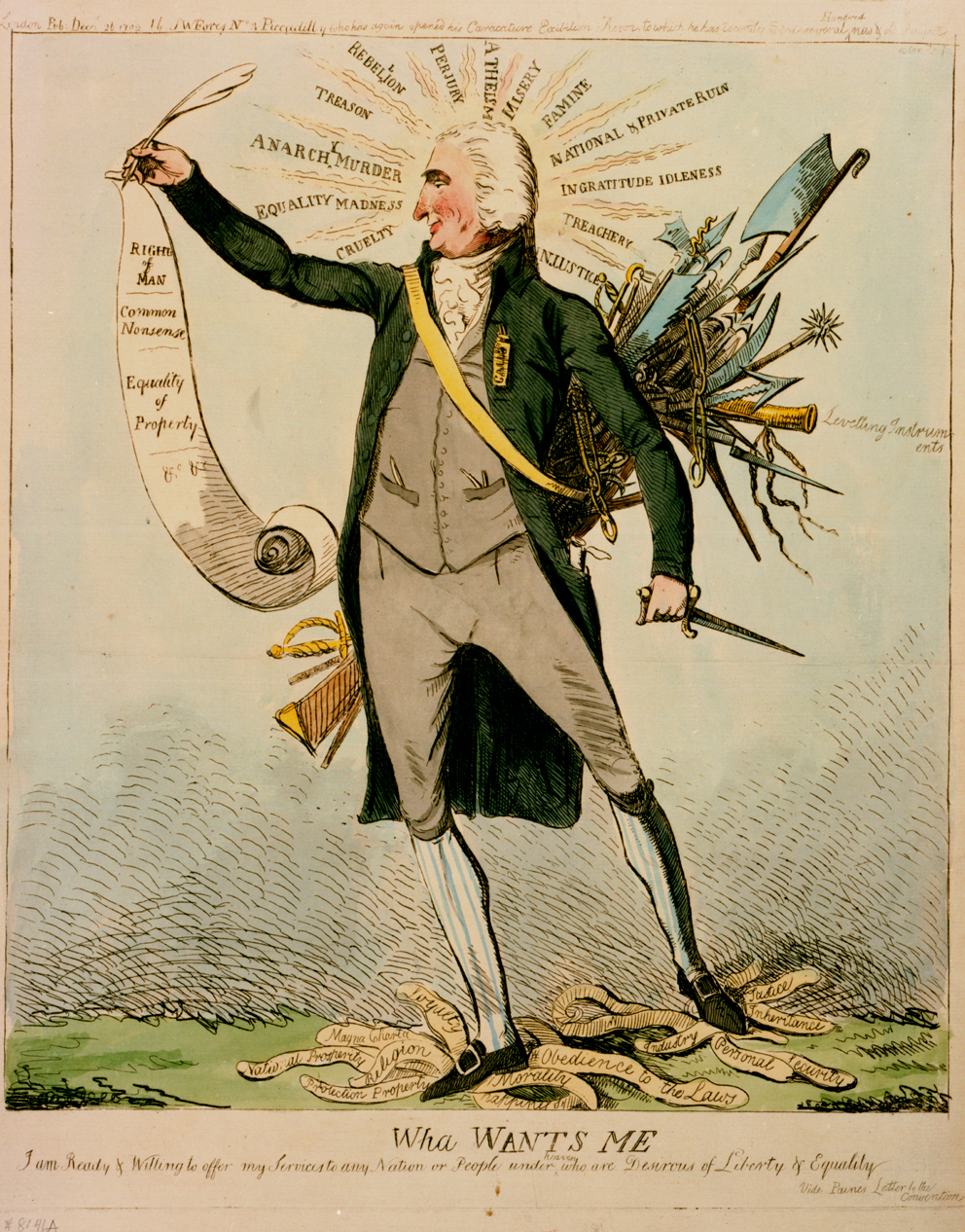Seth Cotlar’s Tom Paine’s America: The Rise and Fall of Transatlantic Radicalism in the Early Republic (2011) is an intellectual history of the development of US political culture in 1790s, primarily as it struggled to define itself against the momentous events of the French Revolution. While I am far from familiar with the literature of the early republic – or indeed of American history in general – it was refreshing to read Cotlar’s internationalized take on US political thought. From the beginning, Cotlar sets out to dispel exceptionalist and nationalist readings of American history that view the polity as isolated from developments across the Atlantic, and even the Caribbean and further afield. Cotlar demonstrates that American political thought and popular nationalism in the formative decade of the 1790s was to a great extent defined by repudiating its transatlantic “Other”: French revolutionary Jacobinism. Furthermore, Cotlar’s “history of ideas from the bottom up”[1] resurrects the obscured contest between the activist, cosmopolitan, and pro-French partisans of Thomas Paine with their anti-cosmopolitan, conservative Democratic, and Federalist opponents. In this way, the French Revolution was transposed onto American soil and fought in newspaper columns of its defenders and its detractors.
Cotlar’s text appears to speak to many of the problems associated with the literature of the early republic as delineated in our common readings by Brooke, Waldstreicher, Pasley, and Robertson. Largely avoiding the high politics of “great men,” Cotlar’s main sources are pamphlets, newspapers, sermons, and books produced by American intellectuals and activists outside of the official political class. Indeed, one of his main objectives is to demonstrate the extent of popular mobilization and discussion of political issues, and in this he succeeds remarkably. Despite earning top billing, Paine plays a relatively small role in the text, functioning mostly as a trendsetting “godfather” figure for the radical democrats of the era. These democrats developed a resonant critique of laissez-faire capitalism, private property, and concentrated wealth, while simultaneously pushing a participatory model of “radical publicity” in the realm of political representation.
But the most significant contribution of Cotlar’s book is its vivid demonstration of the depth of American cosmopolitanism. In these pages, British, French, and Americans are constantly engaged in a debate over the meaning of democracy. Wisely, Cotlar does not limit his attention to radicals – in fact a large portion of his book is devoted to the conservative backlash against the Painites and Jacobin sympathizers. Likeminded thinkers of all persuasions cultivated international alliances to advance their domestic agendas. While it is no secret that the radical democrats’ agenda was thoroughly trounced by their opponents, Cotlar’s contribution shows that a great deal of defining what the American republic was consisted of a concerted effort to define what it was not. Cotlar convincingly argues that the battles of the 1790s were formative in the development of an American political culture: one that would consistently emphasize its own triumphant exceptionalism in the face of foreign depravity. As a historian of the twentieth century, I couldn’t help but notice the rhetorical and substantive similarity between the anti-Jacobin and anti-communist crusades.
However, there are limitations to Cotlar’s brief work. Missing from these pages are substantive discussions of the role of women, slavery, and the indigenous population. While it seems quite natural that scant attention would be paid to such subjects in an intellectual history of the 1790s, considering these sectors of the population (together the majority) were excluded from meaningful participation in society, much less intellectual debates, their omission is scarcely accounted for by Cotlar. One is frequently left wondering just how radical the Painite populace was, but more importantly for our purposes, what might an American intellectual history of the 1790s that does not ignore oppressed groups look like?
[1] Cotlar, Tom Paine’s America, 9.
